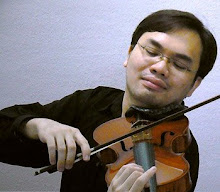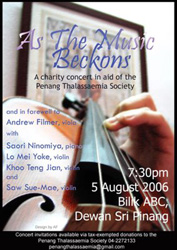But of course the money is important, I know that first hand. And therein lies the conflict between how these two aims not only coexist, but are on each other reliant. It is in this line of thought that I refer you to Ong Tee Keat's comments on reviewing PSD scholarships in today's Star:
Currently, Ong said, the selection is based on four criteria - merit (20%), race (60%), Sabah and Sarawak citizens (10%) and students from underprivileged groups (10%).If I could take a moment to be self-serving, there is a part of me that wishes that were true. I'd like my current applications to be entirely reliant on GPA, and there's a personal statement - the substitute for an interview - for a New Zealand government doctoral scholarship that's giving me more than a bit of stress. But I understand where Ong Tee Keat is coming from, with all these Chinese students (let's face it, he's saying it on behalf of the MCA after all) with spectacular SPM results who can't get into medicine. And he's right that on an academic level at least they probably earned the level of scholarship more so than some of those who actually got it.
He said if meritocracy was part of the criteria, the students’ co-curriculum [sic] activities and interviews should not be included for consideration.
"Meritocracy means it should solely be the students’ results and not any other areas," he said.
The problem is that he's saying the wrong things, even if they are for the right reasons. Meritocracy does not preclude the use co-curricular activites nor the role of an interview. Leadership ability and the application of theory into practice, for which we have co-curricular activies, are important elements of a scholar. Just as interviews are important not only to assess one's communication skills but to know (especially in our memorization-based public schooling system) that one has skills of analytical thinking that match or balance with the academic results. We need to produce scholars that enter the major academic institutions of the world not to promote our great skills of memory, but to lead intellectual discussions and debates essential to thorough research.
I suspect that Ong knows this, or least he knows that results really isn't what meritocracy is about. Or rather what meritocracy is against. Meritocracy is in truth against the abuse of subjective areas like co-curricular activities and interviews to put people in who shouldn't be there.
More importantly, you can't say that meritocracy is "part of the criteria" - you either have it, or you don't, and all the criteria which any student cannot earn renders it moot.
Of course, race is the hot button when it comes to these discussions, the big taboo. But real meritocracy wouldn't even take into account Sabah and Sarawak, and even the need-basis is often not part of the picture, if someone is truly in need but has not earned the level required. If there are two people for one scholarship award, and one has more need, that's only when it should be taken into account. If there is one scholarship award and no one qualified, then it should not be awarded.
In the end it's not about seeing more Chinese getting PSD scholarships, or I should say it's not just about that. It's not about whose SPM results got them what. It's about who have already graduated from having PSD scholarships and whether they have made their country proud with their public service - that is, after all why they call it the Public Services Department. It's about making sure that whoever it is who gets these scholarships, whether it be 100% Malay or 100% Chinese prove their academic capabilities (and not just their spending abilities), their scholarship, their ability to come back with the title of scholar, proving beyond a doubt that they have given back in stature as much as they have been given in stipend.






No comments:
Post a Comment